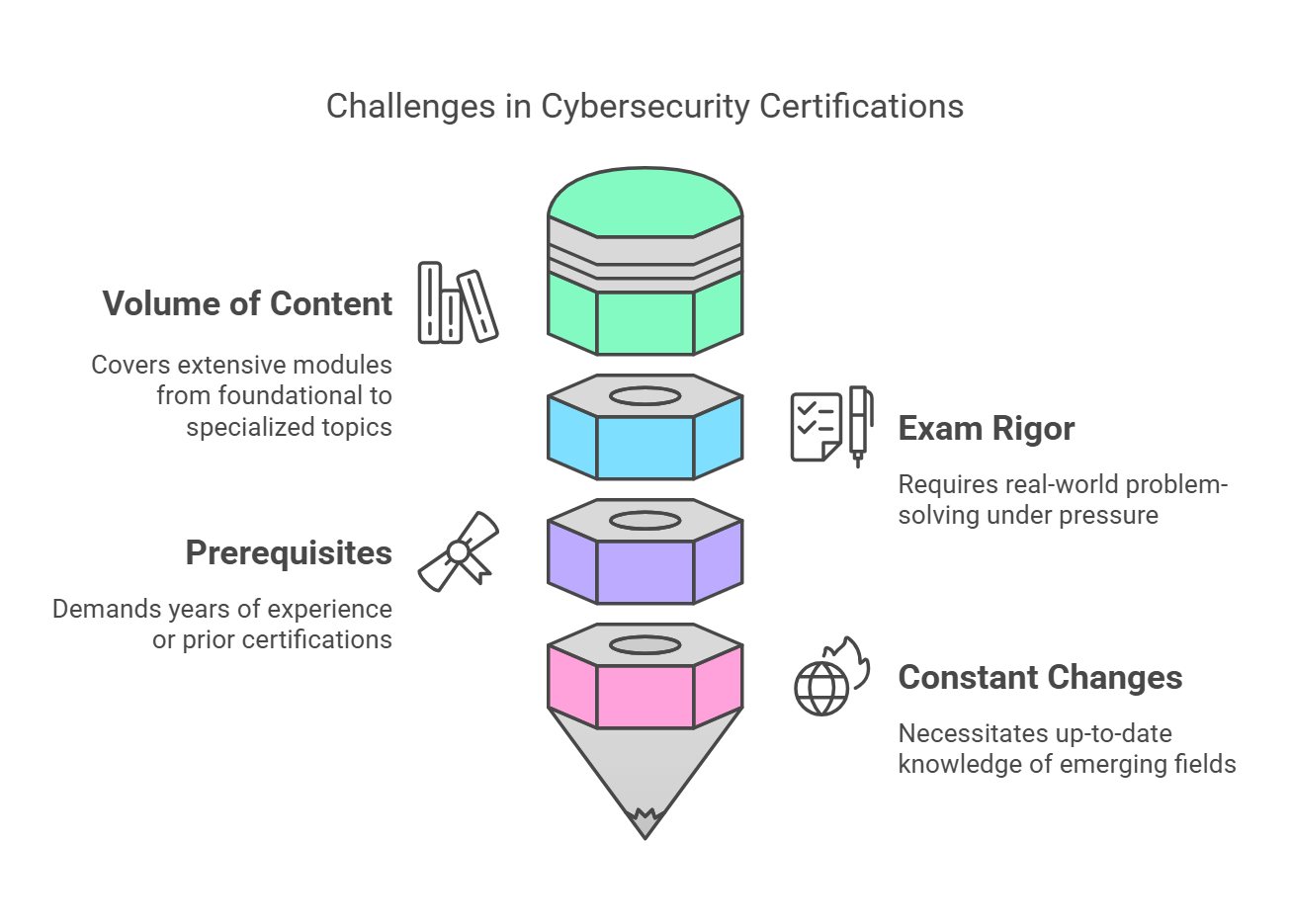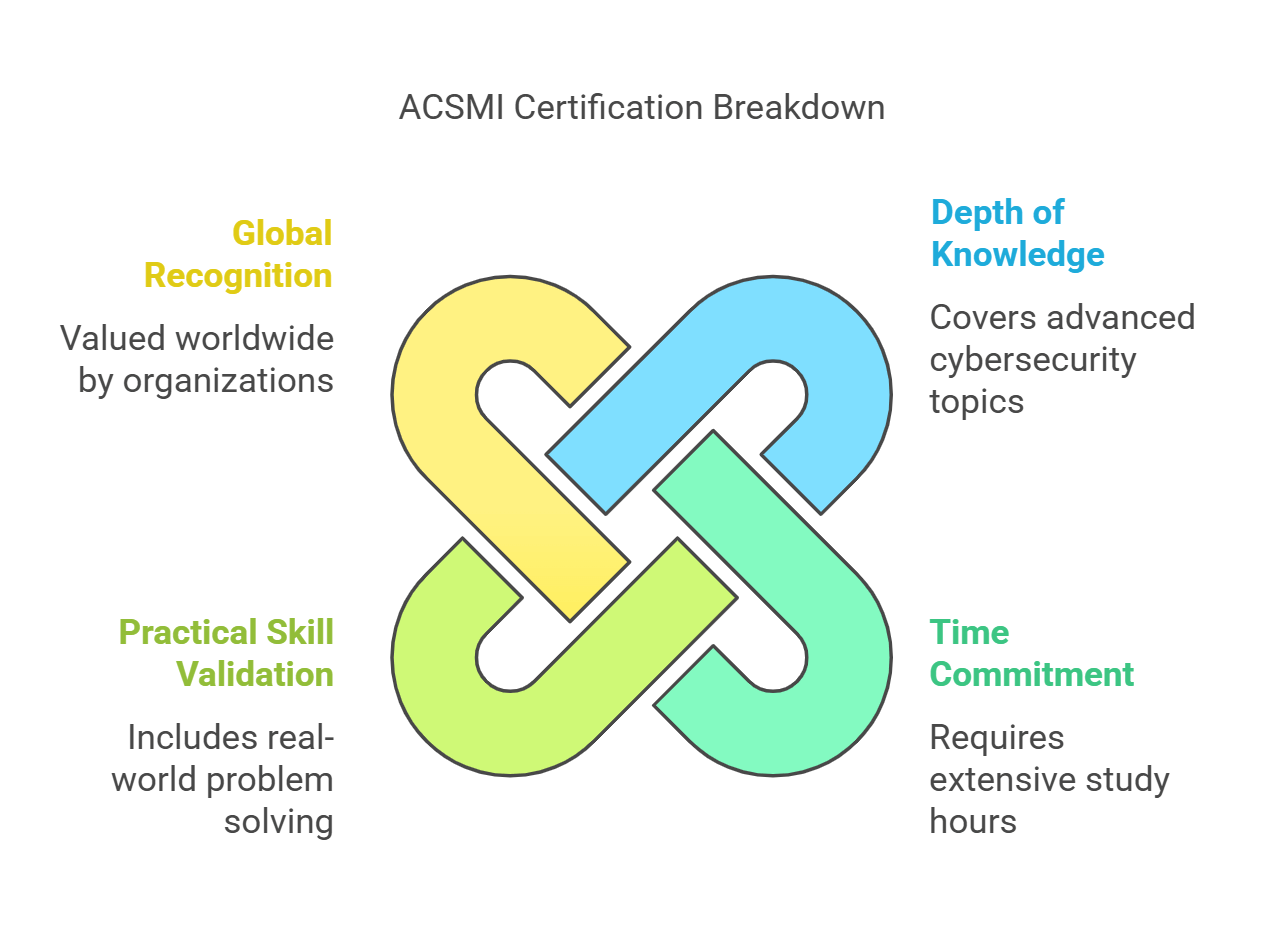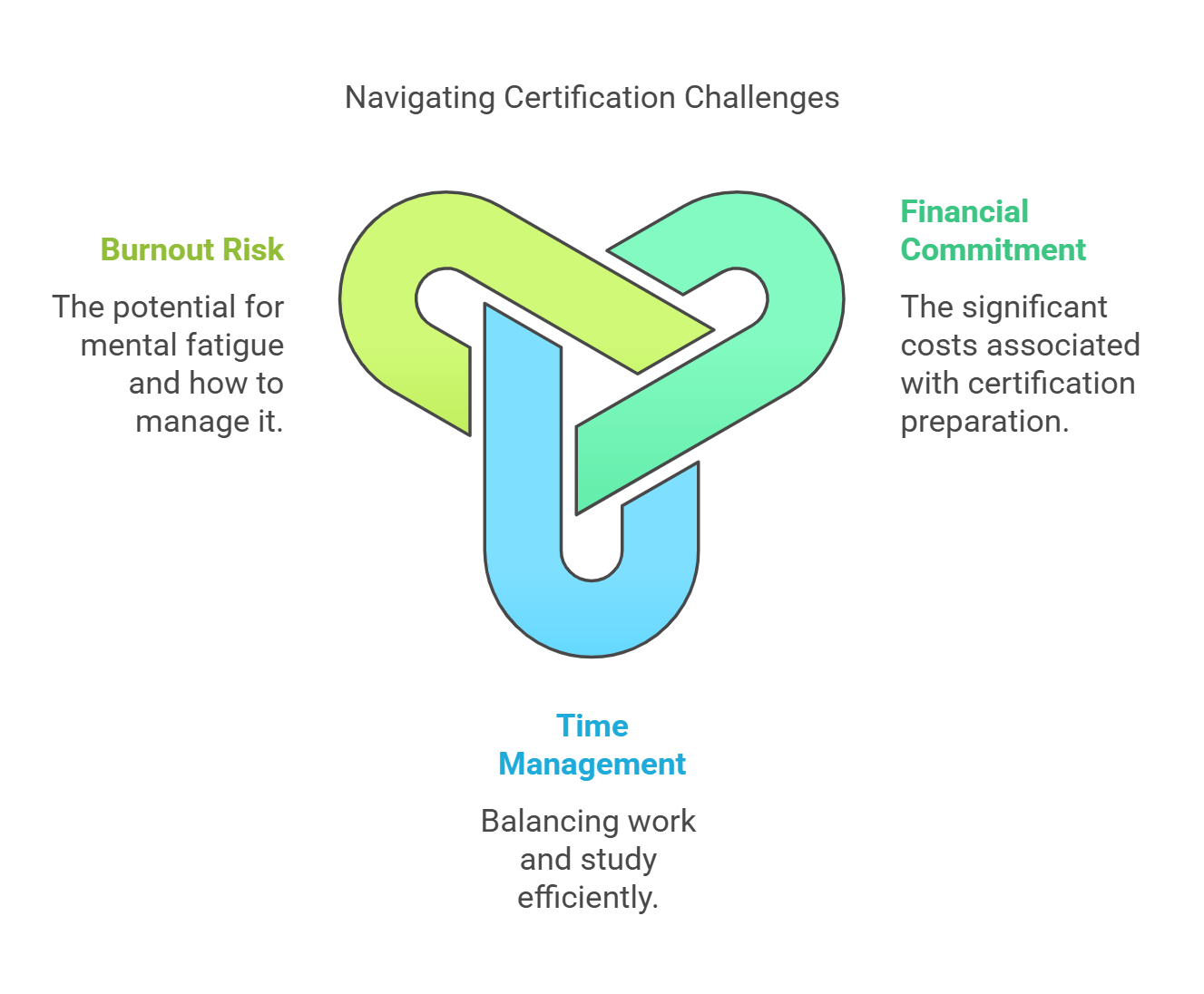Table of Contents
- Why Some Cybersecurity Certifications Are Harder Than Others
- What Is the Hardest Cybersecurity Certification?
- What Sets the ACSMI Certification Apart?
- Why Pursue the Hardest Cybersecurity Certification?
- Challenges You’ll Face While Pursuing the Hardest Certifications
- ACSMI Certification Overview
- Final Thoughts on Pursuing the Hardest Cybersecurity Certification
- FAQs About the Hardest Cybersecurity Certification
Cybersecurity is one of the most in-demand professions globally, driven by the increasing complexity of digital threats and the growing reliance on technology. As the field evolves, so do the skills required to protect businesses and individuals from cyberattacks. As we enter 2025, companies are more willing than ever to pay top dollar for qualified cybersecurity professionals. A cybersecurity certification is a crucial tool to advance your career, whether you’re just starting or looking to specialize. In this blog, we’ll explore the hardest cybersecurity certifications of 2025, how they impact your earning potential, and how platforms like ACSMI Certification can boost your credentials and career prospects.
Why Some Cybersecurity Certifications Are Harder Than Others
As the cybersecurity landscape grows more complex in 2025, the certifications required to tackle emerging threats also become more demanding. Certain certifications push professionals to the limits with an expansive range of topics and practical applications. Here’s why some certifications are considered harder than others:

1. Volume of Content
The hardest cybersecurity certifications, such as ACSMI, cover more than 400 modules. These modules span everything from ethical hacking to advanced threat intelligence. Given the increasing number of emerging threats in 2025, these certifications demand a mastery of both foundational and specialized cybersecurity concepts. The sheer volume of material makes it essential for professionals to continuously update their knowledge and stay ahead of evolving threats.
2. Exam Rigor
Cybersecurity exams are not just about multiple-choice questions. The hardest certifications require you to demonstrate real-world problem-solving under pressure. ACSMI, for example, involves hands-on challenges that simulate live cyberattacks or forensic investigations. With the rise of new cybersecurity frameworks and attack techniques in 2025, exams now reflect the most current industry practices, pushing candidates to solve problems like an actual cybersecurity professional would.
3. Prerequisites
To successfully tackle these difficult certifications, candidates often need years of experience or prior certifications. This trend continues into 2025, as industry leaders demand professionals with hands-on experience and a deep understanding of complex cybersecurity areas. Without these prerequisites, attempting to earn the hardest certifications can feel like an overwhelming task.
4. Constant Changes
The cybersecurity field is constantly evolving in response to new threats. As we enter 2025, emerging fields like AI-driven security systems, IoT security, and cloud security are shaping the landscape. Certifications like ACSMI require candidates to have up-to-date knowledge, ensuring that professionals are prepared for the rapidly changing cybersecurity environment. Staying on top of these developments is essential for passing the most difficult certifications.
What Is the Hardest Cybersecurity Certification?
Several certifications are known for their difficulty, but ACSMI is widely considered one of the hardest cybersecurity certifications in 2025. With its 400+ modules and hands-on approach, ACSMI challenges even the most seasoned cybersecurity experts. It’s not just about passing an exam; it’s about demonstrating mastery in tackling some of the most advanced digital security challenges the industry faces today.

What Sets the ACSMI Certification Apart?
1. Depth of Knowledge Tested
ACSMI’s 400+ modules cover everything from advanced penetration testing to zero-trust implementation, incident response, and advanced threat intelligence. In 2025, cybersecurity professionals must have an in-depth understanding of these concepts to tackle the most sophisticated cyber threats. The ACSMI certification tests your expertise across a broad range of topics, ensuring you can manage real-world cybersecurity challenges.
2. Time Commitment
In 2025, earning certifications like ACSMI requires a significant time investment. You will need to dedicate hundreds, if not thousands, of hours to studying and gaining hands-on experience. This certification isn’t just about theoretical knowledge—it’s about developing specialized skills that are highly sought after by employers in the cybersecurity field. The commitment needed to pass ACSMI is substantial, but the rewards are well worth the effort.
3. Practical Skill Validation
Unlike many traditional certifications, ACSMI exams include practical components where candidates must solve real-world cybersecurity problems, such as identifying multi-layer attacks or performing forensics investigations. As cybersecurity threats in 2025 continue to grow in sophistication, hands-on skill validation has become even more essential in assessing a candidate’s ability to perform in high-stakes situations.
4. Global Recognition
The ACSMI certification is globally recognized, with many organizations viewing it as the gold standard for cybersecurity expertise. In 2025, as businesses and governments face increasingly complex cyber threats, the demand for highly skilled professionals with ACSMI certification is expected to grow. Earning this certification elevates your credibility and ensures that you’re recognized as a leader in the cybersecurity field.
Why Pursue the Hardest Cybersecurity Certification?
Despite the challenges involved, pursuing one of the hardest certification test in cybersecurity, like ACSMI, offers numerous benefits. These certifications not only enhance your technical skills but also significantly boost your career prospects with the hardest certification test.
1. Career Advancement
As cybersecurity continues to grow rapidly, professionals with advanced certifications like ACSMI will be in high demand. Earning top-tier certifications sets you apart for higher-paying roles, such as Security Architect, Information Security Manager, or Chief Information Security Officer (CISO). In 2025, the cybersecurity job market is expected to expand significantly, and professionals with these certifications will be poised to take advantage of this growth.
2. Personal Growth
The process of earning the hardest certifications is transformative. The skills you gain will extend far beyond the certification itself. In 2025, cybersecurity experts need to be adaptable and capable of handling complex and evolving challenges. By earning certifications like ACSMI, you will become a more well-rounded, capable professional who can tackle the most demanding cybersecurity issues.
3. Industry Demand
With cybersecurity jobs expected to grow by 35% through 2025, high-level certifications will give you a competitive edge in a rapidly expanding field. Whether you’re looking to work in tech, healthcare, finance, or government, earning a prestigious certification like ACSMI increases your employability and ensures that you’re in demand across industries.
Challenges You’ll Face While Pursuing the Hardest Certifications
No major achievement comes without its challenges. If you’re preparing for difficult certifications like ACSMI, expect obstacles such as:

1. Financial Commitment
The cost of registration, study materials, and boot camps can add up to thousands of dollars. In 2025, cybersecurity certifications continue to be a major investment, but the long-term benefits far outweigh the costs, with high-paying roles awaiting those who complete these certifications.
2. Time Management
Balancing full-time work with hours of study requires excellent time management skills. As the cybersecurity field grows in complexity, the time commitment to prepare for certifications like ACSMI has become more intense. Dedication, consistency, and discipline are key to managing this challenge.
3. Burnout Risk
Preparing for one of the hardest cybersecurity certifications can lead to mental fatigue or burnout. To prevent this, it’s crucial to take regular breaks and maintain a healthy work-life balance. In 2025, managing mental and physical well-being is an important part of the certification journey.
ACSMI Certification Overview
The ACSMI certification is designed for professionals who want to push the boundaries of their cybersecurity expertise. With over 400 modules, it provides a comprehensive education that prepares you for leadership roles in cybersecurity. Whether you want to specialize in cloud security, penetration testing, or governance strategies, ACSMI is an excellent investment in your career.
Final Thoughts on Pursuing the Hardest Cybersecurity Certification
Pursuing one of the hardest cybersecurity certifications, like ACSMI, is a challenging yet rewarding endeavor. As we enter 2025, the demand for cybersecurity professionals continues to grow, and certifications like ACSMI will be essential for professionals looking to stand out in this rapidly evolving field. While the challenges are significant, the rewards include career advancement, personal growth, and the opportunity to make a lasting impact in the cybersecurity industry. Whether you’re looking to tackle the toughest security threats or advance your career, ACSMI offers a life-changing opportunity to become a leader in cybersecurity.
FAQs About the Hardest Cybersecurity Certification
What makes a cybersecurity certification hard?
Certifications are considered hard based on their depth, required knowledge, and hands-on experience. Hard certifications like ACSMI require years of experience and extensive learning.
How does ACSMI compare to other certifications?
ACSMI stands out for its sheer scope and practical approach, covering over 400 modules. This makes it more challenging than certifications like CISSP or CISM, which focus on fewer, broader topics.
Is the ACSMI certification worth it?
Yes. The ACSMI certification opens doors to high-paying and specialized cybersecurity roles. It elevates your career prospects and provides you with unmatched expertise in cybersecurity.
How long does it take to prepare for ACSMI?
Depending on your existing knowledge and time commitment, preparation can take anywhere from 6 months to over a year.
Can a beginner aim for the hardest cybersecurity certification?
Beginners should first focus on foundational certifications like CompTIA Security+ or CEH before aiming for advanced certifications like ACSMI.

Leave a Reply